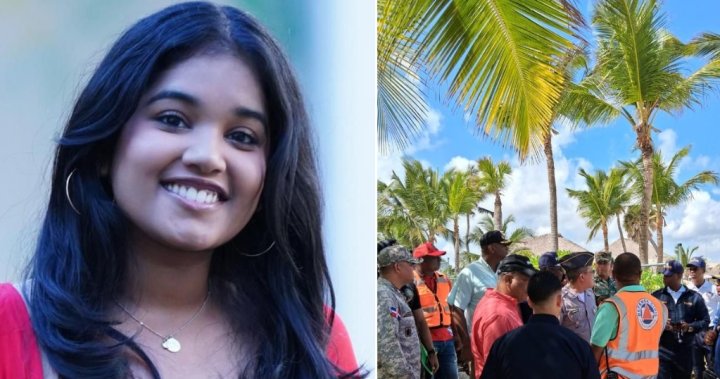 Jacinta Maslai using her solar-powered spinning machine at her home in Patharkhmah village in Ri Bhoi district of Meghalaya. Credit: Sanskrita Bharadwaj/IPS
Jacinta Maslai using her solar-powered spinning machine at her home in Patharkhmah village in Ri Bhoi district of Meghalaya. Credit: Sanskrita Bharadwaj/IPSWARMAWASAW, Meghalaya, India, Apr 03 (IPS) - In India’s Meghalaya, silkworm rearing and weaving are common in rural areas. Ri-Bhoi district of Meghalaya is among the regions where eri culture is deeply rooted in tradition; several women there are using solar-powered spinning machines to make yarn.As light enters through the small window of a modestly constructed tin-roofed house, Philim Makri sits on a chair deftly spinning cocoons of eri silk with the help of a solar-powered spinning machine in Warmawsaw village in Ri Bhoi district of Meghalaya in northeast India.
Makri belongs to the indigenous Khasi tribe of Meghalaya and is one of the several women from the region who has benefitted from solar-powered spinning machines.
In India’s northeastern states like Assam and Meghalaya, silkworm rearing and weaving are common among several rural and tribal communities. Ri-Bhoi district of Meghalaya, where Makri is from, is among the regions where eri culture is deeply rooted in tradition and is often passed on from one generation to the other.
The process of spinning and weaving eri is mainly carried out by women. Before switching to the solar-powered spinning machines in 2018, Makri used a traditional hand-held ‘takli’ or spindle. She would open the empty eri cocoons, draft the fibers by hand, and spin them onto the spindle to create yarn. This process was extremely laborious, 60-year-old Makri said. It would leave her feeling tired with constant pain in her hand, back, neck, and eyes.
Process of spinning eri yarn
Eri derives its name from castor leaves—locally known as ‘Rynda’ in the Khasi language. Castor leaves are the primary food source for the eri silkworms. As the production process is considered to be non-violent, eco-friendly, and sustainable, eri silk has earned itself the title of ‘peace silk.’
Thirty-eight-year-old Jacinta Maslai from Patharkhmah village in Ri Bhoi district, who has been spinning eri cocoons into yarn for years, explained how an eri moth lays hundreds of eggs and after 10 days or so, these eggs hatch, producing silkworms, which are then reared indoors and fed castor leaves until they mature over a period of 30 days.
When the silkworm matures to its full size, they are placed on cocoonage—devices that help silkworms spin their cocoons. The moth evolves, breaking out from the open end of the cocoon to start a new life cycle. Thus, in this process, no moths are killed. The empty cocoons are boiled to remove the gums left behind by the worms; they are then rinsed and left out in the sun to dry.
According to Maslai, the best season to carry out this process is from May till October. “When the weather is too cold or too hot, the worms don’t grow properly because they eat less. If they don’t eat well, they don’t make the cocoon well enough,” Maslai said.
Switching to solar-powered spinning machines
Women artisans have for years used their traditional spindles or ‘taklis,’ to spin eri cocoons into yarn. However, many of them, like Maslai and Makri, have now switched to the solar-powered spinning machines, which they claim have made their lives “easier.”
Since Maslai started using the solar-powered machines, she says she can weave up to 500 grams in a week. “Sometimes even a kilo is possible in a week but many of us have children and farms to look after so we can manage up to 500 grams in a week,” Maslai said, adding that before they wouldn’t get a kilo even if they spun for an entire month with the ‘takli.’
“The machines help a lot—with our hands, we couldn’t do much.”
In the nearby Patharkhmah market, Maslai sells one kilo of yarm for Rs 2500.
Makri, who is considered an expert at spinning eri yarn, said she has sold 1 kg of yarn for up to Rs 3000. “The lowest quality of one kilo of eri yarn is about Rs 1200-1500. The quality also differs in terms of the smoothness of the yarn sometimes,” Makri said.
The machines have also made our lives better because their villages are usually without electricity for an entire day, Maslai said. In the mornings they usually go out for farming; evenings are the time when they find adequate time to spin.
“The machines provide backup solar batteries so we can work at night. It is helpful during the rainy season too when it’s too cloudy for the solar panels to be used as a direct energy source,” Maslai said, adding, “I spin a lot in the evenings after cooking dinner. That’s when my kids are asleep.”
The machines have been distributed by MOSONiE Socio Economic Foundation, a not-for-profit led entirely by a group of women based in Pillangkata of Ri Bhoi district in Meghalaya.
“Our vision is to increase the productivity of eri silk spinners by providing solar-powered spinning machines to them. We also want to provide them financial options to afford a spinning machine by connecting them with rural banks. The idea is to give them training to use these machines and promote entrepreneurship among the women artisans,” said Salome Savitri, one of the co-founders of MOSONiE.
Many women in rural areas, Savitri said, cannot afford to buy the machines or do not have the money to pay direct cash; this is where she said MOSONiE steps in and bridges the gap between Meghalaya Rural Bank (MRB) and the women artisans. For instance, Maslai took a loan from MRB to buy the spinning machine, which she paid off after a year.
Maslai recalls how, with training from MOSONiE, it took her about three days to make the switch from a handheld spindle to the machine. “We use the machine now and no longer use the traditional method,” Maslai said.
Makri, who is one of the more experienced ones, also teaches others from her village to use the solar-powered spinning machines. Individually, people give her Rs 50-100 per day for the training they receive from her. She has won awards for her work from India’s ministry of textiles, central silk board, and the national handloom awards.
Upasna Jain, chief of staff at Resham Sutra, a Delhi-based social enterprise that has been manufacturing the solar-powered spinning machines, said not-for-profit organizations like MOSONiE, which is an on-ground partner of Resham Sutra in Meghalaya, help them establish rural experience centers. “We have our on-ground partners, who enable us to mobilize, create awareness, outreach, and demonstrations. In the rural experience centers, we have machines for spinning but we also have machines for quality certification. The on-ground partners impart 3 to 5 days of training, and we also have community champions because even after training, a lot of handholding is required,” Jain explained.
Out of 28 states, currently, Resham Sutra has managed to reach 16 states of India. “We work with eri, mulberry, tussar, and muga silk,” Jain said. Started in 2015, the Resham Sutra initiative has more than 25,000 installations across India.
“Our founder, Kunal Vaid, was an exporter of silk and home linen, and he would source his silk fabric from Jharkhand, where he saw the traditional thigh reeling process to make tussar yarn…he being a mechanical engineer who specialized in industrial design, out of a hobby innovated a spinning wheel, which has now become a full-time business enterprise.”
Jain added, “He also transitioned from being an exporter to a full-time social entrepreneur.” Apart from the spinning wheels, Resham Sutra also manufactures solar looms.
Through the use of solar, Jain said, their aim is to also take the silk industry towards carbon neutrality. She said, “As our machines are solar-powered, we save a lot of carbon dioxide, our machines run on low voltage and they are energy efficient. So, wherever there is ample sunlight, these machines are a great solution, especially in remote villages where electricity can be erratic.”
While both Makri and Maslai like using their machines, they said that an extra space to expand their spinning avenues would help them greatly. Makri wants to build another room where she can keep both her spinning machines and teach others too. Maslai, who lives in a two-room house, said there is barely any space for her to teach anyone else but she still tries to pass on the craft to young girls as well as boys who are interested in learning. “When I am teaching, they look after my kids as a token of goodwill.”
IPS UN Bureau Report,
Follow @IPSNewsUNBureau
Follow IPS News UN Bureau on Instagram
© Inter Press Service (2025) — All Rights Reserved. Original source: Inter Press Service

 1 day ago
3
1 day ago
3










 English (US) ·
English (US) ·